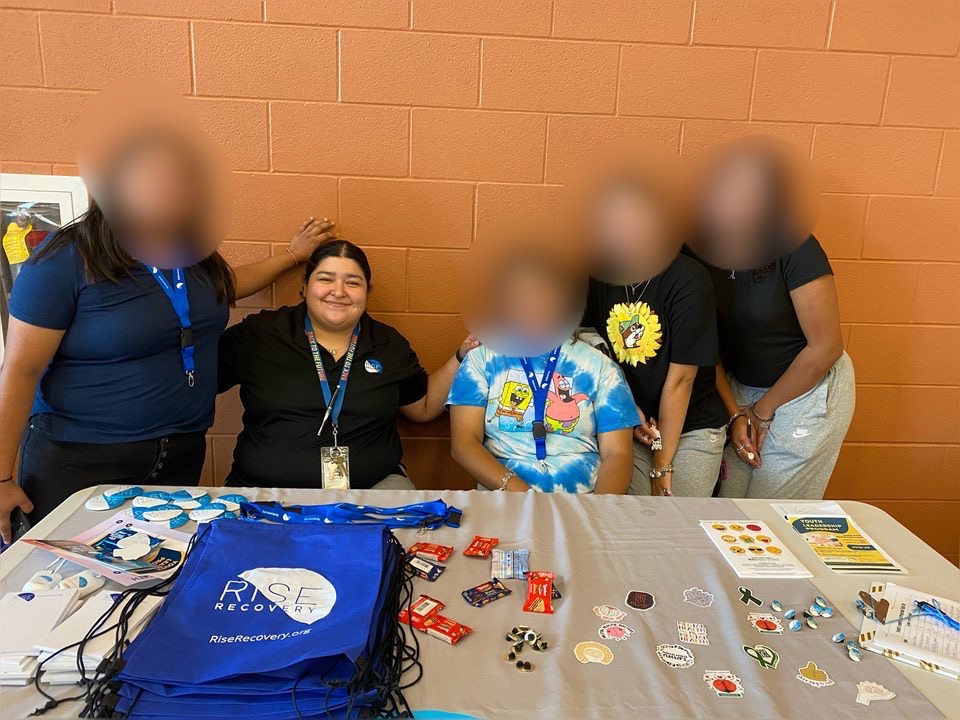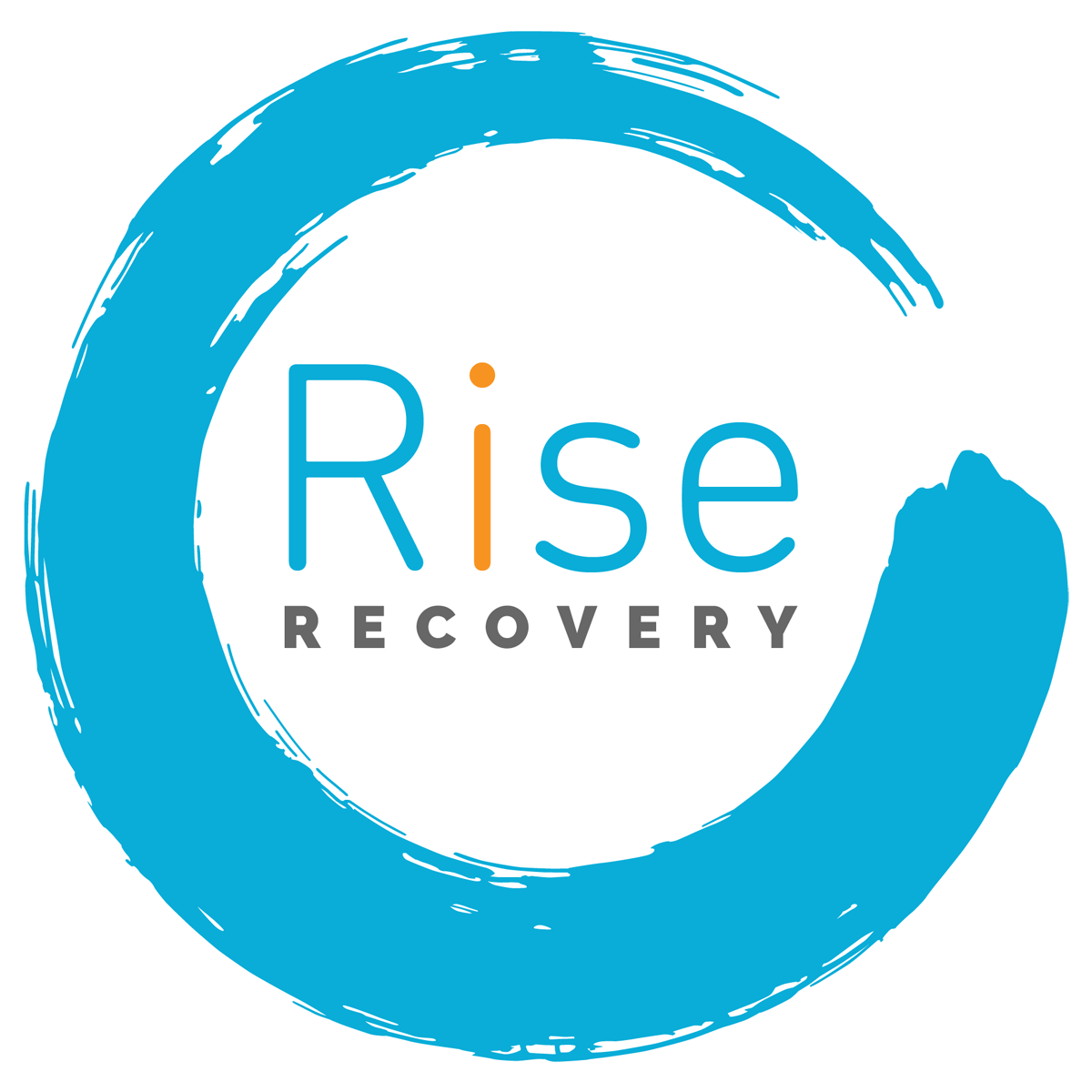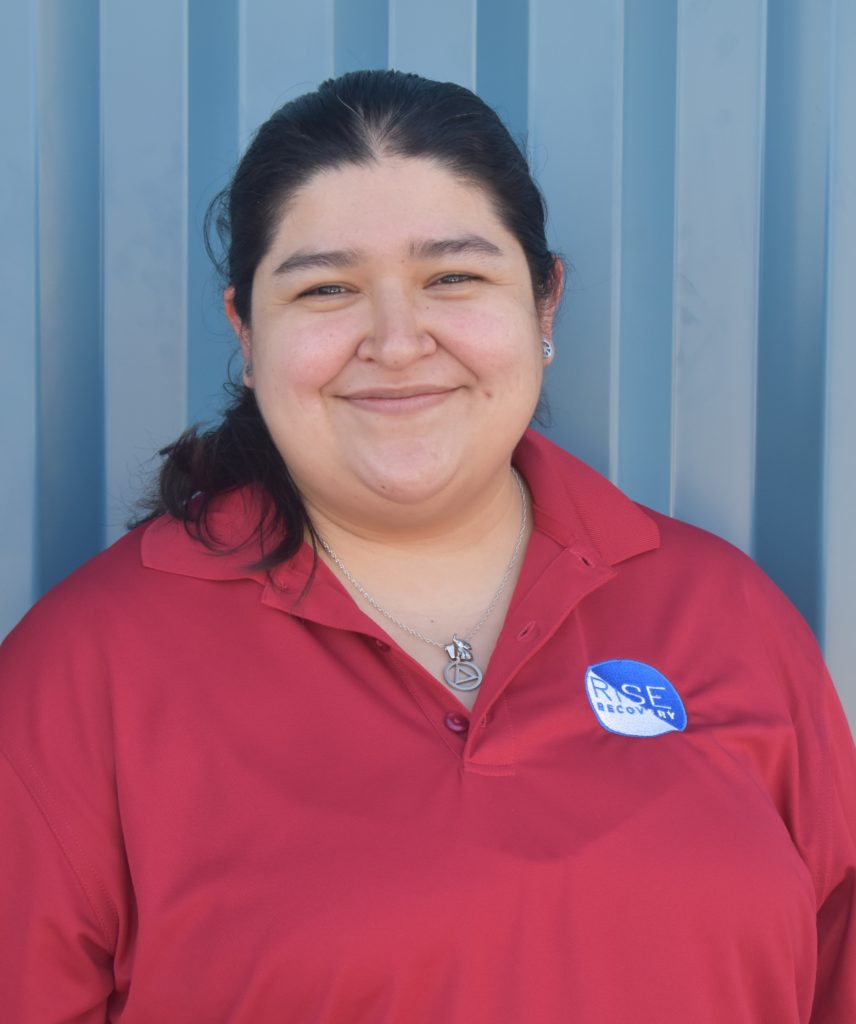The Harlandale Care Center sounds like a pretty ordinary name for a school building, but this is actually a place of healing, hope, and recovery beyond the scope of any regular school day. The people who make their offices inside these unassuming walls are actually part of a grand experiment to better serve the students of Harlandale ISD. The San Antonio Mobile Mental Wellness Collaborative was founded in 2019 by a group of nonprofits wanting to provide a holistic approach to mental wellness by breaking barriers and bringing services into the schools.
Jessica Alcala, a Licensed Chemical Dependency Counselor, represents Rise Recovery as a Mobile Mental Wellness Collaborative member. Rather than make her office on the Rise Recovery
Charlie Naylor Campus, Jessica drives to the Harlandale Alternative School every day and drinks her first cup of coffee in her office at the Harlandale Care Center. We caught up with Jessica this week to learn more about her work.
What’s your favorite thing about working with youth?
There are a lot of things: One, they’re fun. I love working with them. They’re honest, they share what they feel. I feel like the big need for a lot of teenagers is that they need someone to talk to. Growing up as a teenager, I didn’t know who to talk to, but because of the community and how Rise is, I think it gets the students to really open up without being judged. They’re so creative too.

What advice would you give a youth member starting their sobriety?
One of the biggest I would suggest is that you know there are going to be challenges throughout your early sobriety and life and general. Don’t quit before a miracle happens. Keep going and ask for help. It’s okay to ask for help. Don’t be afraid to share whatever it is you’re going through. Being vulnerable doesn’t make you weak, it makes you stronger. That’s what I would’ve wanted for someone to tell me.
Can you explain the Youth Leadership Program?
The YLP program is a pilot program that started last year. We started it at the STEM Academy in Harlandale ISD. It’s a leadership program to teach the students to be advocates for mental health and substance abuse. There are two phases: the first phase is them learning about what the program is. Then there’s education on mental health, leadership styles, communication and how they can communicate assertively, and teaching how to inspire others. After they finish that in the very last session before they graduate on their first phase, we ask them: “what is something that you feel passionate about that you would want to present?”
This past year, the students taught the faculty about coping skills, and a lot of the information that was provided to them through one of our partners in the collaborative: the Children’s Bereavement Center. Now our goal for this year is to have our peer leaders from the program last year teach our new recruits this year so that it keeps growing. That is our hope for the program.
What is something that I hope the students will get out of it?
I hope we can break the stigma of mental health and substance abuse. I hope the students are able to see their mental health as not a disability, but a strength. Same for substance abuse, I believe they go hand in hand.
Can you explain what you do hear at the Harlandale Care Center?
With the Care Center, not only do I do the youth leadership program, but I also provide group sessions to the alternative school. The students that are caught using substances are automatically referred to us. We meet them on campus and provide them with individual sessions as well as group sessions. Once they complete their time at the alternative they have the choice to continue with us or end services. So, if they decide to continue services, we will follow them. We go into Leal Middle School, Kingsborough Middle, Harlandale Middle, STEM Academy, Frank Tejeda campus, Harlandale High School, and McCollum High School. We’ve also received elementary referrals.
That’s one of the great things about Rise Recovery is that we don’t just help out the people struggling with substances, but the whole family. So we will get referrals from family members that need support because their loved ones are using substances. We get referrals from Rise Recovery’s Young Adult Program and New Gens. We’re pretty much all around in Harlandale.
What is your favorite thing about working at Rise Recovery?
The people. The people that I work with. I know Roy probably hears it all the time, but he’s the best boss I’ve ever had. Not only him, but everyone at work is so kind, loving, and nonjudgmental. It doesn’t even feel like work to me. It’s something that I’m grateful to wake up and be like “Omg yes! I’m going to work!” It’s like a second family, and that is what I love.






